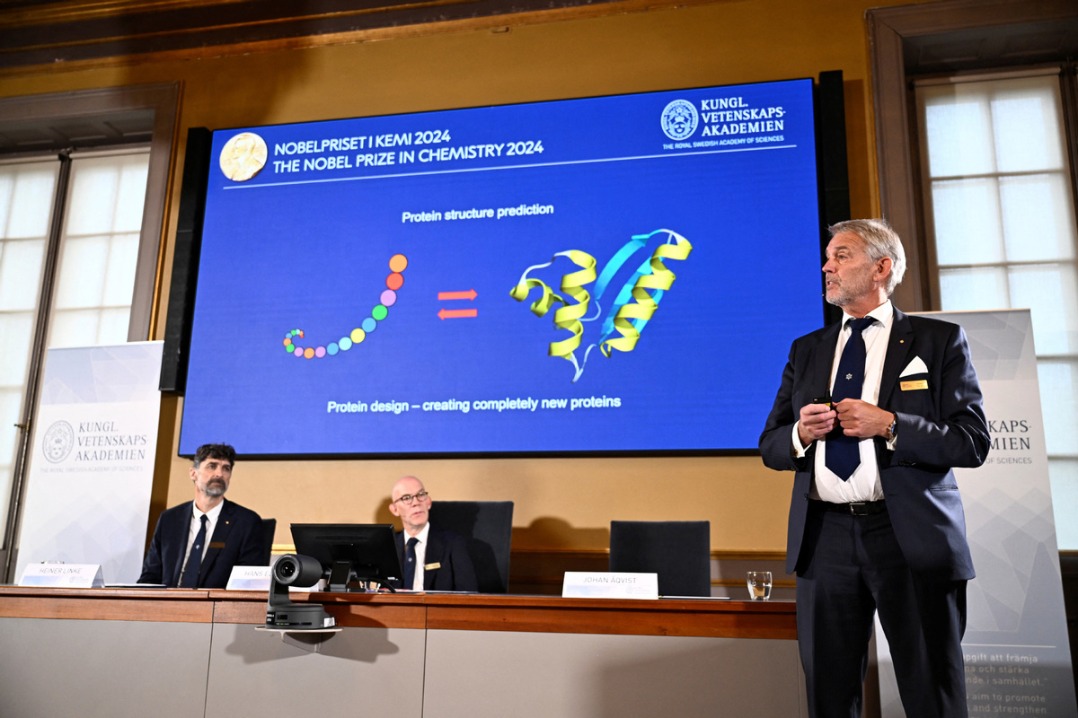For the good of all: China contributes to a greener world
By Yi Xin | chinadaily.com.cn | Updated: 2023-12-26 12:07

On December 1, 2016, when a new type of green license plate was first put into use in China for new energy vehicles, it was thought to be an unnecessary introduction. Seven years on, the once seemingly out-of-place invention has become commonplace in every Chinese city. More than 18,000 NEVs are sold across the country every day as more and more people are going for a green and low-carbon way of life.
China now possesses over 18 million NEVs - more than half of the world’s total. It has remained the world’s biggest NEV producer and seller for eight years in a row. Chinese NEVs are exported to many Asian and European countries, and brands like BYD and MG have become some of the most popular.
With that in mind, it’s not a big surprise to see electric shuttle buses that were made in China serving COP28, the United Nations Climate Change Conference which just concluded in Dubai last week.
A gathering for action
COP28 was held at a critical moment, as the year 2023 is set to be the hottest year on record according to the World Meteorological Organization. Over the year, extreme weather and climate events — floods, heat waves, droughts, wildfires, tropical cyclones, etc. — have affected many parts of the world.
Encouraging progress was made at COP28, notably the first ever Global Stocktake under the Paris Agreement on climate change and the operationalization of the Loss and Damage Fund, established to support vulnerable countries bearing the brunt of climate disasters.
On Wednesday, COP28 concluded with the UAE Consensus, a “historic agreement” calling for a transition away from all fossil fuels to enable the world to reach net zero by 2050.
Yet there remains much to be done to meet the internationally agreed temperature control targets outlined in the Paris Agreement: limiting the global temperature rise to 1.5 degrees Celsius above pre-industrial levels. This means not only commitment, but also action.
A clear message was conveyed by COP28: It’s time to Unite, Act and Deliver. As a responsible major country, China is taking steady steps to honor its commitment and taking the lead in global efforts to address climate change.
Impressive scorecard
China attaches great importance to green and low-carbon development. In 2020, it announced ambitious targets to strive to peak carbon dioxide emissions before 2030 and achieve carbon neutrality before 2060. That would mean the biggest cut in carbon emission intensity in the shortest time in history.
Solid progress has been made in meeting the goals. Among others, carbon intensity in 2022 is more than 51 percent lower than 2005 levels. The installed capacity of renewable energy reached 1.4 billion kilowatts, and overtook that of coal fire for the first time in 2023. The size of China’s newly-added green coverage accounts for 25 percent of the global total.
It is worth noting that the Hangzhou Asian Games 2023 achieved carbon neutrality for the first time in the history of Asian Games and Asian Para Games. This is largely thanks to the extensive use of recyclable or degradable materials and green electricity supply. Also, an unforgettable part is digital fireworks that were used at the opening and closing ceremonies.
Beyond borders
Bearing in mind the greater interest of humanity, China puts green development high on its international cooperation agenda. Promoting green development is among the eight major steps of high-quality Belt and Road cooperation, and the Global Development Initiative also has “climate change and green development” as one of the key cooperation areas.
In recent years, China has completely stopped building new coal-fired projects abroad. It is now the supplier of over 50 percent of the world’s wind power equipment and 80 percent of photovoltaic modules. Chinese enterprises have contracted in multiple clean energy projects around the world, sharing know-how and contributing to local energy transition efforts.
As a member of the developing world, China is also supporting fellow developing countries in their energy transition. Since 2011, China has channeled more than 1.2 billion yuan ($168 million) for South-South climate cooperation and signed 48 MOUs with 40 developing countries on South-South cooperation on climate change.
Through the provision of equipment, mitigation and adaptation projects and capacity-building programs, such cooperation has yielded fruitful results. Remote sensing satellites for climate monitoring in Ethiopia, low-carbon demonstration zones in Laos, energy-efficient lights in Fiji… These have all contributed to efforts to cut emission, enhance climate resilience and improve local people’s well-being.
Facing global challenges like climate change requires cooperation among all countries. Despite twists and turns in bilateral relations, China and the United States have maintained close dialogue and cooperation on climate issues. Undoubtedly, the recent release of the Sunnylands Statement on Enhancing Cooperation to Address the Climate Crisis re-injected much-needed hope and confidence to the world.
It is the common responsibility of all countries to turn their climate commitments into actions. China is making its share of contributions to tackling climate change and advancing global climate governance. It is also ready to work with all others to build a clean and beautiful world, where no one will be left behind.
Addressing climate change influences a global future, and every one of us can make contributions to this endeavor. As Mahatma Gandhi once said: “Whatever you do may seem insignificant to you, but it is most important that you do it.” As a start, perhaps give NEVs some serious thought when you buy a new car?
Yi Xin is a Beijing-based observer.
The opinions expressed here are those of the writer and do not necessarily represent the views of China Daily and China Daily website.
If you have a specific expertise, or would like to share your thought about our stories, then send us your writings at opinion@chinadaily.com.cn, and comment@chinadaily.com.cn.
























